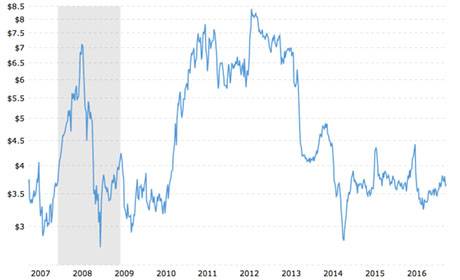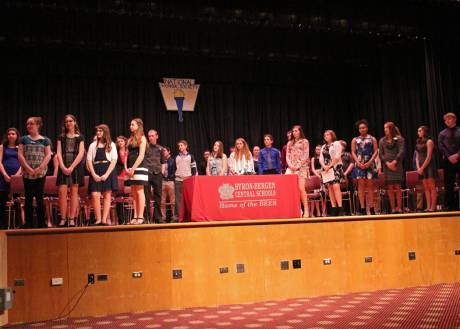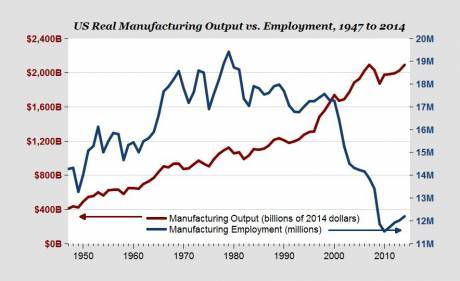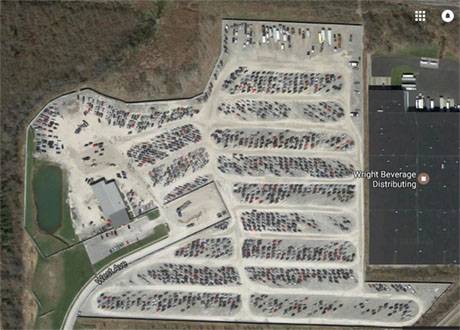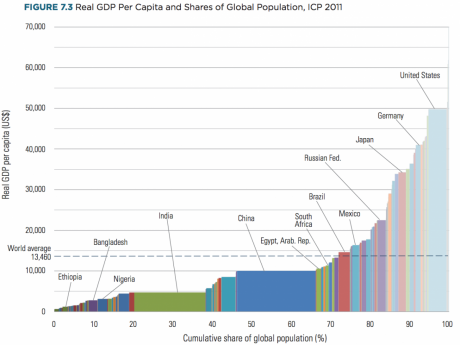Part 5: Trump, trade and the local economy
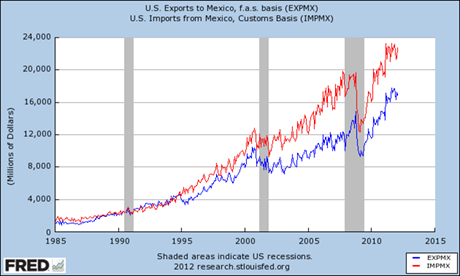
NAFTA
This is part five of an eight-part series on trade and how changes in policy might affect the local economy.
While farmers worry about the impact of changes to the current world trade regime and the place of the United States in that scheme, even local ag leaders have their complaints about the North American Free Trade Agreement.
During his campaign for president, Donald J. Trump criticized NAFTA repeatedly and zeroed in on trade with Mexico as his chief complaint with the pact. Local farmers, though, are more concerned about NAFTA's impact on trade with Canada.
For local manufacturers, NAFTA isn't a big worry, though they, too, see some need for reforms.
Trump said renegotiating NAFTA would be a top priority once he took office, calling trade with Mexico one-sided, pointing to the surging trade deficit and his belief that NAFTA has caused job loss in the United States.
Since the agreement was ratified in 1994 (negotiations began under President George H.W. Bush, and President Bill Clinton signed it after it was ratified by the Senate), the United States has swung from a $1.7 billion U.S. surplus in 1993 to a $63 billion deficit; however, in that same time, U.S. exports to Mexico have grown from $41 billion to $231 billion. Some five million U.S. jobs depend on exports to Mexico.
By some estimates, more than 800,000 manufacturing jobs in the United States have been lost to Mexico since the passage of NAFTA, mostly in Rust Belt states. It appears jobs created by NAFTA have popped up in more Southern states, where there was a more ready supply of non-union labor.
The pattern of manufacturers fleeing higher cost Northern states for Southern states began decades before NAFTA was ratified. Think of GTE-Sylvania eliminating more than 700 jobs in Batavia in 1976 and shifting production to North Carolina.
Compare Sylvania leaving, or Massey-Harris Harvester Company, or, more recently, PepsiCo with the Quaker Muller plant -- all companies with no roots in Genesee County -- to p.w. minor, Liberty Pumps, Chapin, and Graham -- all locally grown companies that are still in business, some after more than 100 years.
The leaders of those companies hold a variety of views on NAFTA.
For Bergen-based Liberty Pumps, Canada is one of the prime export markets for the company, said CEO Charlie Cook and he isn't anticipating any trade policy changes that will disrupt the business.
"Not a lot is going to happen with NAFTA as far as our relationship with Canada," Cook said. "It might change our relationship with Mexico, but that is not a big market for us. There is a lot of potential for us in Mexico, but it's not currently a big market."
Pete Zeliff, CEO of p.w. minor, doesn't anticipate much impact from potential changes to NAFTA and favors trade barriers that protect U.S. manufacturers.
"Even if we run into problems with renegotiating these trade deals and we can't export as much, if we can't import as much then we don't need to export as much," Zeliff said. "It creates a bigger market for USA-made products."
Neither Mexico nor Canada figures big in Graham's imports or exports. Graham designs and manufactures vacuum and heat transfer equipment for energy markets.
"We sell across the globe," Jeff Glajch said. "We sent a lot to the Middle East, a lot to Asia, South America. We don't tend to do a lot of business in Europe. We don't have a particular country that is more than 10 percent of our sales."
Jim Campbell, CEO of Chapin, said that any change with NAFTA will have some impact on his business, but it's unclear now what that impact will be. He said he belongs to a group that represents CEOs of U.S. manufacturing companies and NAFTA isn't universally loved by that group.
"The general consensus is that NAFTA didn't work as well as everyone thought it would," Campbell said.
He said he tends to favor the kind of bilateral agreements Trump has said he intends to seek.
"If we have an agreement with just Canada, we can try to work out things so they are favorable to both sides," Campbell said. "The issues with Mexico are quite different than the issues we might have with Canada."
That said, he wants to see what the Trump Administration does before deciding if it's good or bad. Any change will affect Chapin and his main competitors equally, he said, so he anticipates a level playing field in that regard.
"Depending on how they do it, it could work out really great or it could be a disaster," Campbell said. "All I know is NAFTA is the devil we know and we all work around it."
CHART: Exports have increased on both sides of the border with Mexico since NAFTA was signed.
Previously:










